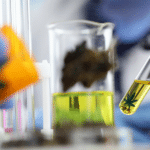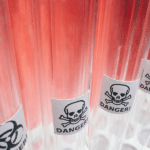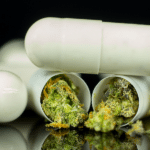After over a century of failing to find a causal link between cannabis use and schizophrenia, proponents of Reefer Madness have had to couch their warnings.
Perhaps it precipitates psychosis in vulnerable individuals, according to the ironically-named “two-hit” hypothesis. The first hit could be a mother’s illness during pregnancy or unlucky genetics, and then a quick hit of weed as a teen is the second shot to your mental health, causing permanent, full blown psychosis. Or so the narrative goes.
Italian scientists at the University of Cagliari recently tested this hypothesis in a rat model of schizophrenia. Prenatal exposure to an inflammatory agent called poly (I:C) disrupts dopamine signaling and causes behavioral symptoms of schizophrenia and autism (usually only in male rats). Would adolescent injection of THC further harm brain structure and rats’ mental stability? No. In fact, exposure to THC during adolescence seemed to protect the rats’ brains. THC, a potent anti-inflammatory, was specifically protective after a “first hit” to their system in the form of prenatal inflammation. The scientists speculate that THC could alter the regulation of the endocannabinoid system in the brain, offsetting the inflamed hypersensitive state.
The researchers also examine the response of their rats to addictive drugs like nicotine and cocaine. Treatment with THC appeared to blunt the brain’s response to nicotine, particularly in combination with inflammation. The heavy use of tobacco among patients with schizophrenia makes this an important topic for future research.
Adrian Devitt-Lee is a research scientist and longtime Project CBD contributor. © Copyright, Project CBD. May not be reprinted without permission.







